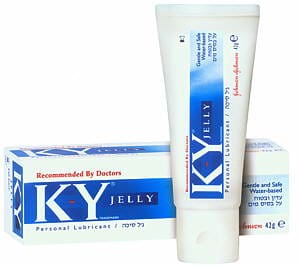 Here at the National Defense Industry Association symposium, it’s more than just a bunch of people looking at booths and handling guns. There are also a series of talks going on covering a number of different topics. One talk that interested my inner nerd was on the effects of lubricated ammunition on reliability, and the results were fascinating.
Here at the National Defense Industry Association symposium, it’s more than just a bunch of people looking at booths and handling guns. There are also a series of talks going on covering a number of different topics. One talk that interested my inner nerd was on the effects of lubricated ammunition on reliability, and the results were fascinating.
The study, which was done by various Department of Defense entities, was targeted at identifying a specific issue that was plaguing the M249 machine gun. On a number of occasions, an M249 in Afghanistan had a case head separation very early in the first belt of ammunition, which caused the gun to be out of action. DoD wanted to know why this was happening, and so they commissioned a study to figure it out.
In a normal situation, case heads separate in the M249 when the chamber pressure reaches 90,000 PSI. Normal M855 has a chamber pressure closer to 70,000 PSI when the propellant is heated to 160 degrees, the typical temperature of a M249 barrel after firing a few rounds, which eliminated temperature as the primary factor in these case failures. The next idea was that excessive lube was affecting the headspace and compressing the cartridge, but it was determined that if enough lube was involved to affect headspace then the bolt would fail to lock and the firing pin would not strike the primer.
So what was the issue? It turned out to be a combination of multiple factors, the largest of which is lube on the ammo.
Lubed ammunition lowers the friction between the case and the chamber. Most guns are designed to have some of the pressure being forced back on the bolt by the expanding gases be relieved by the friction between the case and the chamber. Because the case no longer gripped the chamber as much, all of that force was placed on the back of the cartridge and the face of the bolt.
The increased pressure on the case head subsequently found an escape route thanks to the relatively unsupportive bolt head of the M249 (it doesn’t support the case as well as an M16 bolt), causing a case failure.
But why did this happen early in the belt? It turns out that machine gunners were over-lubricating their machine guns to ensure that they operated reliably when they needed them to. Instead of that extra lube helping them, it in fact was causing their guns to stop working in an even more spectacular way.
This is some advice that every shooter should heed: NEVER LUBE AMMO and try not to over-lube your gun. No matter what gun you’re using, be it a bolt action or some spacegun, lubing your ammunition will put excess pressure on the bolt and cause it to wear out faster and may even cause case failures.





haha i love the old school “the more you know” picture, or maybe the gi joe “knowing is half the battle”
I was taught that lube in the barrel of a gun (you’re shooting) is a big no-no. Always run a patch down the barrel before you plink, I think.
“lightly oiled patch” seems to be the quote that comes to mind from nearly ever modern gun owner’s manual I’ve read.
The idea of running a lightly oiled patch through the cahmber and barrel of a gun was simply to have a very light coat of oil to protect against surface rust. This story makes sense since reports from friends indicate that many in the military are teaching their troops to badly overclean and overlube their weapons.
Interestingly, several machine guns manufactured by the Germans, Italians, French & Japanese between 1910 & WWII were built WITH cartridge lubrication systems intended to improve their function.
Schwarzlose, Hotchkiss & Nambu come to mind.
I want to know how well the KY worked in the gun.
I came across one shooter who drenched all loaded .45 mags with oil before using them on the range. Maybe he survived by only using wadcutter loads.
There’s almost a chapter in MAJGEN J. Hatcher’s book, “Hatcher’s notebook” on this problem. Waaaay back in the 30’s when he was associated with national matches run by the then dept. of war, he looked into what would happen with over lubricated guns, and lubricated bullets. Same problem. It’s kinda funny that if he army had looked at what was written 70 years ago by the guy in charge of arming the army they would have had the solution. I guess we all keep on re-inventing the wheel every now and then.
Comments are closed.